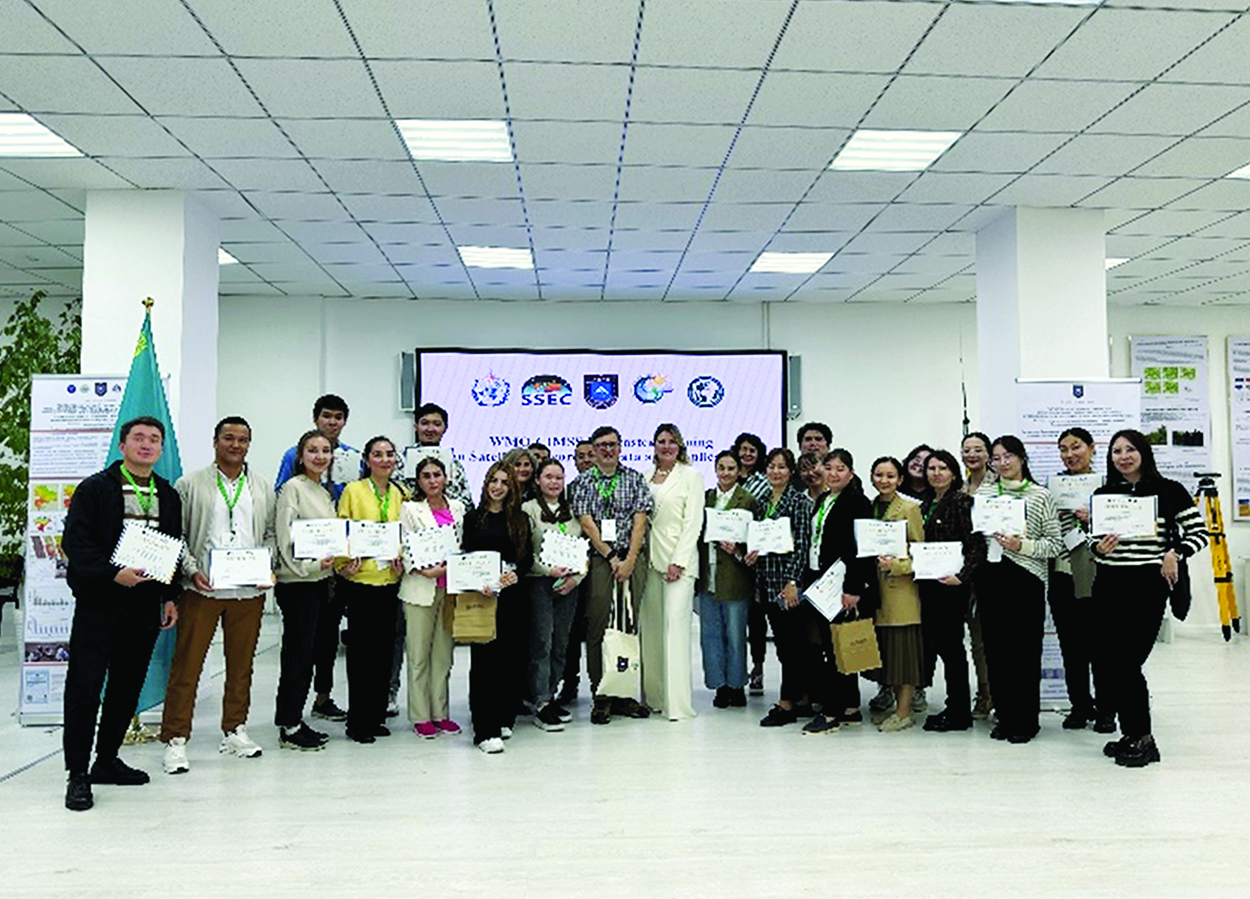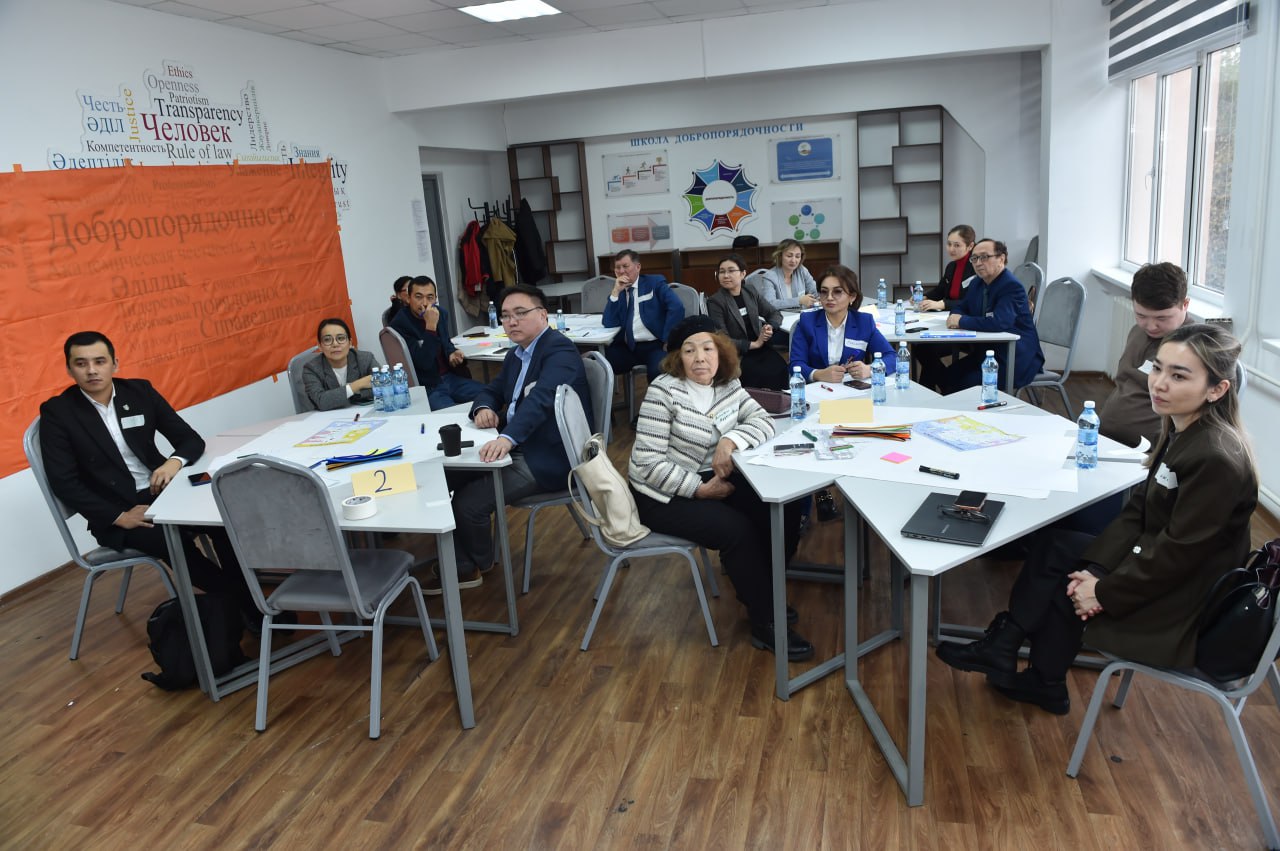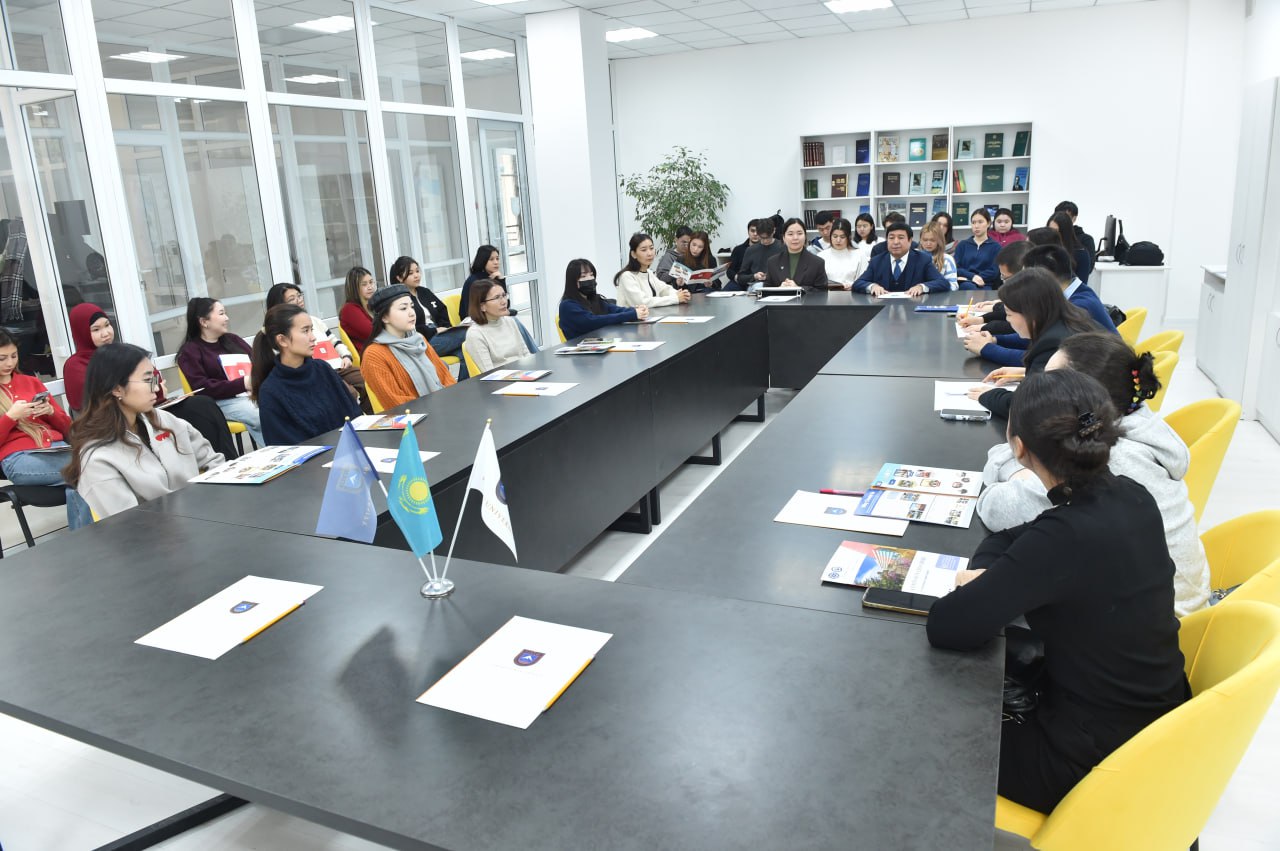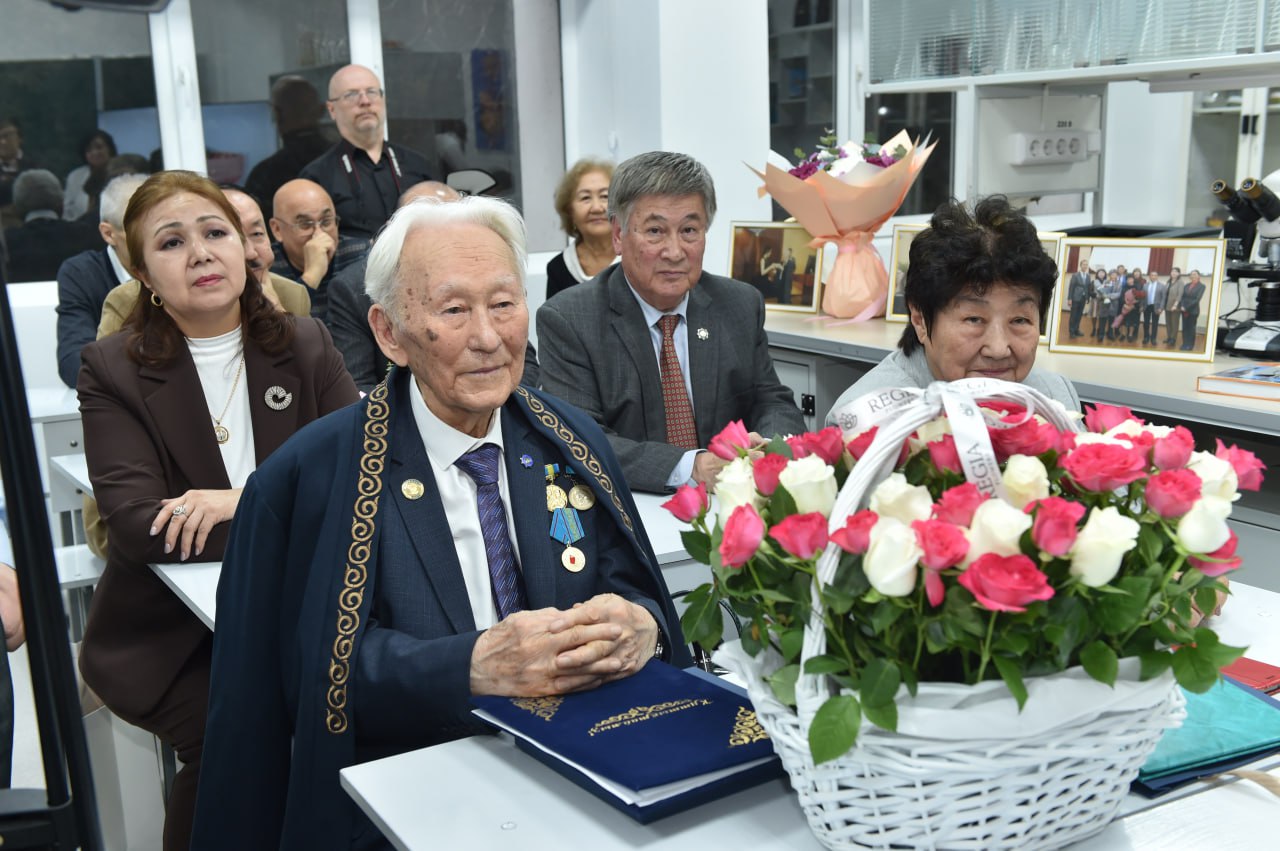The training brought together academics from CA and the Caucasus

Climate change is one of the most important issues of our time. There is no longer any doubt that our planet's climate is changing and changing rapidly. With global climatic changes and frequent natural disasters such as droughts, floods and hurricanes, the importance of accurate and timely forecasts is more important than ever. Satellite data play a key role in monitoring atmospheric processes and their proper use helps to improve the quality of forecasts, increase safety and protect society from the consequences of natural disasters.
In order to expand knowledge on modern methods of using satellite data for weather forecasting and other meteorological phenomena, an international training on the theme: ‘Remote Sensing Technology and Applications’ was organised by the Department of Meteorology and Hydrology at the Kazakh-Chinese Laboratory of Al-Farabi KazNU, bringing together young people from Central Asia and near abroad. The international training was jointly organised with the World Meteorological Organisation (WMO) and the Centre for Satellite Data for Research and Development (CIM
SS), which became an important platform for exchange of experience and knowledge in the field of satellite meteorology. WMO is the authoritative source of information within the United Nations system on the state and behaviour of the Earth's atmosphere, its interaction with land and oceans, the weather and climate that shape our planet, and the distribution of water resources.
The training participants were young scientists and students from Armenia, Kazakhstan, Kyrgyzstan, Moldova, Tajikistan and Uzbekistan. The training was conducted by high-level experts: Tim Wagner, researcher from the University of Wisconsin-Madison, and Natalia Donokhova, Head of the WMO Space Systems Division. The international training is an important step towards the development of new links and exchange of experience in Earth science, contributing to the strengthening of co-operation between countries in the region. The participants of the training not only acquired knowledge of modern data processing technologies, but also the skill of working in teams, which will be key in solving interdisciplinary problems in the field of meteorology. Practical exercises included analysis of real satellite images and use of specialised software for weather phenomena modelling. These skills will certainly help the young scientists in their future careers.
Discussions on climate change, sustainable development and disaster response were an important part of the programme. Participants exchanged experiences and ideas, creating a platform for future collaboration. The topics touched upon at the training aroused keen interest and inspired young people to further research. The desire to make the world a better place through science and innovation was the main message of the event. The partnership between different countries and organisations supporting the development of meteorology opened new ways for cooperation and exchange of experience. The WMO-CIMSS Forecaster Training on Satellite Meteorology Data and Applications was an important step towards training a new generation of specialists in the field of hydrometeorology, who will be able to use the latest methods and technologies to ensure a safe future.
Gulnur MUSRALINOVA,
senior lecturer
Aiman NYSANBAEVA,
Candidate of Geological Sciences, Associate Professor
of the Department of Meteorology and Hydrology
Other news


